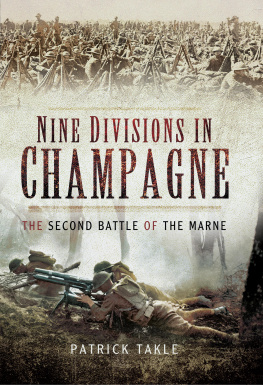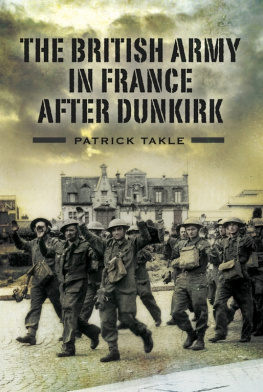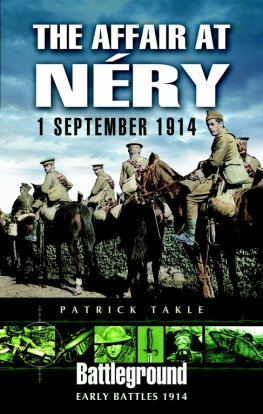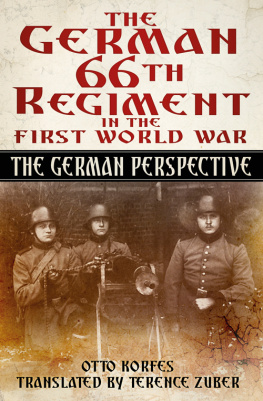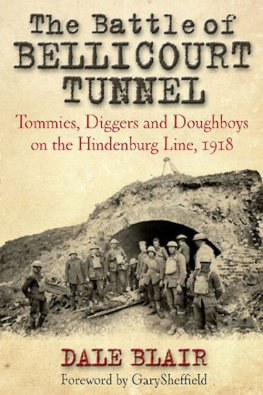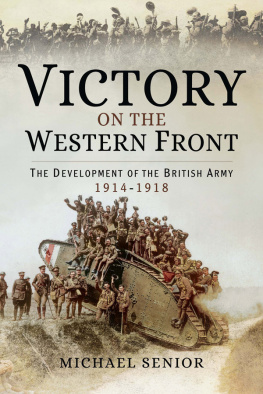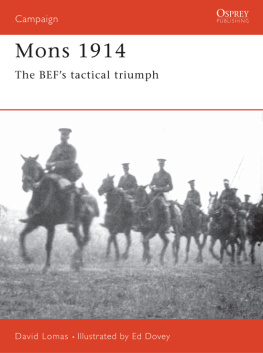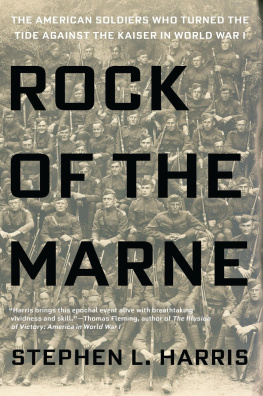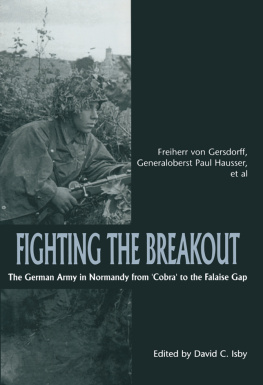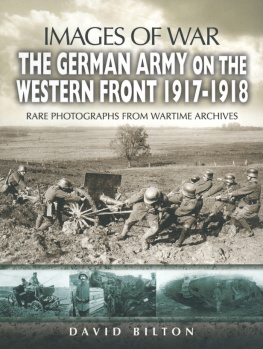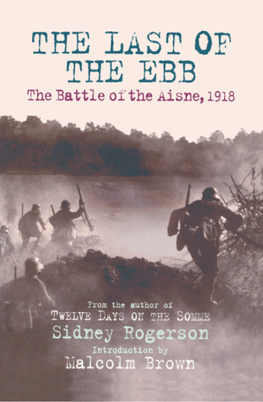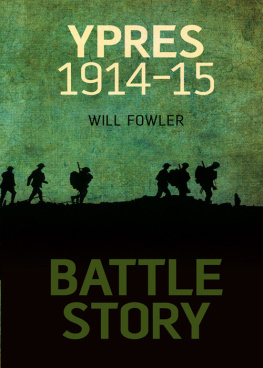


First published in Great Britain in 2015 by
Pen & Sword Military
An imprint of
Pen & Sword Books Ltd
47 Church Street
Barnsley
South Yorkshire
S70 2AS
Copyright Patrick Takle
ISBN 978 1 47383 422 4
The right of Patrick Takle to be identified as Author of this work has been asserted by him in accordance with the Copyright, Designs and Patents Act 1988.
A CIP catalogue record for this book is
available from the British Library
All rights reserved. No part of this book may be reproduced or transmitted in any form or by any means, electronic or mechanical including photocopying, recording or by any information storage and retrieval system, without permission from the Publisher in writing.
Typeset in Palatino by
Replika Press Pvt Ltd, India
Printed and bound in England
By CPI Group (UK) Ltd, Croydon, CR0 4YY
Pen & Sword Books Ltd incorporates the Imprints of Pen & Sword Aviation, Pen & Sword Family History, Pen & Sword Maritime, Pen & Sword Military, Pen & Sword Discovery, Pen & Sword Politics, Pen & Sword Atlas, Pen & Sword Archaeology, Wharncliffe Local History, Wharncliffe True Crime, Wharncliffe Transport, Pen & Sword Select, Pen & Sword Military Classics, Leo Cooper, The Praetorian Press, Claymore Press, Remember When, Seaforth Publishing and Frontline Publishing
For a complete list of Pen & Sword titles please contact
PEN & SWORD BOOKS LIMITED
47 Church Street, Barnsley, South Yorkshire, S70 2AS, England
E-mail:
Website: www.pen-and-sword.co.uk
Dedication
Before Action
By all the glories of the day
And the cool evenings benison,
By that last sunset touch that lay
Upon the hills when day was done,
By beauty lavishly outpoured
And blessings carelessly received,
By all the days that I have lived
Make me a soldier, O Lord.
By all of mans hopes and fears,
And all the wonders poets sing,
The laughter of unclouded years,
And every sad and lovely thing:
By the romantic ages stored
With high endeavour that was his,
By all his mad catastrophes
Make me a man, O Lord.
I, that on my familiar hill
Saw with uncomprehending eyes
A hundred of Thy sunsets spill
Their fresh and sanguine sacrifice,
Ere the sun swings his noonday sword
Must say goodbye to all of this:
By all delights that I shall miss,
Help me to die, O Lord.
Lieutenant W. N. Hodgson MC.
Noel Hodgson published this poem just two days before he was killed on 1 July 1916, as were some 20,000 other British soldiers in the first day of the Battle of the Somme. Lieutenant Hodgson, aged just 23, was the Bombing Officer of the 9th Battalion Devonshire Regiment.
His body was buried together with some 160 other men of the Devonshire Regiment in the trenches they had occupied before the attack. An inscription was carved on the cross which marked their battle graves: The Devonshires held this trench, the Devonshires hold it still.
Their undisturbed graves are now included within Devonshire Cemetery near Mansell Copse, Mametz, close to Albert, France.
Contents
Acknowledgements
Remarkably little attention has been given, over the years, to the two notable British campaigns in the Champagne Region under French Command. I am grateful principally to Dr. Anthony Clayton, formerly lecturer at the Royal Military Academy Sandhurst, who brought this deficit to my attention and furthermore provided constant support and advice during the writing of this book. My thanks are also due to:
Mr. Andrew Orgill, librarian of the Royal Military Academy Sandhurst Library, for his constant interest and help as well as access to the many rare regimental and divisional histories in this magnificent library.
The Library and staff of the Imperial War Museum at South Lambert, London, for access, once again, to its outstanding collection of German Regimental Histories.
The Museum of the Devon and Dorset Regiments at the Keep, Dorchester for permission to use the photograph of the Devons Camp Flag and its Croix de Guerre.
Bill MacKay of Berkley California for permission to quote from the diaries of his grandfather Robert Lindsay Mackay (1896-1981), OBE, MC, MB, CHB, MD, DPH.
The George C. Marshall Foundation on the campus of the Virginian Military Institute at Lexington, Virginia; for the opportunity to visit this magnificent facility and memorial to the life of General Marshall. Thanks are due particularly to Paul B. Barron the Director of Library and Archives and Jeffrey Kozak the Assistant Librarian and Archivist, who were both unfailingly helpful in providing direction and assistance.
Mr Geoffrey Arnio, Superintendent of the American Military Cemetery at Fre-en-Tardenois, for his kind help in understanding the impact of the American troops on the Second Battle of the Marne.
I am also particularly indebted to Richard Doherty for his careful reading of my script and many knowledgeable suggestions and to the support of the whole production team at Pen & Sword and the encouragement of their redoubtable editor Brigadier Henry Wilson.
Maps
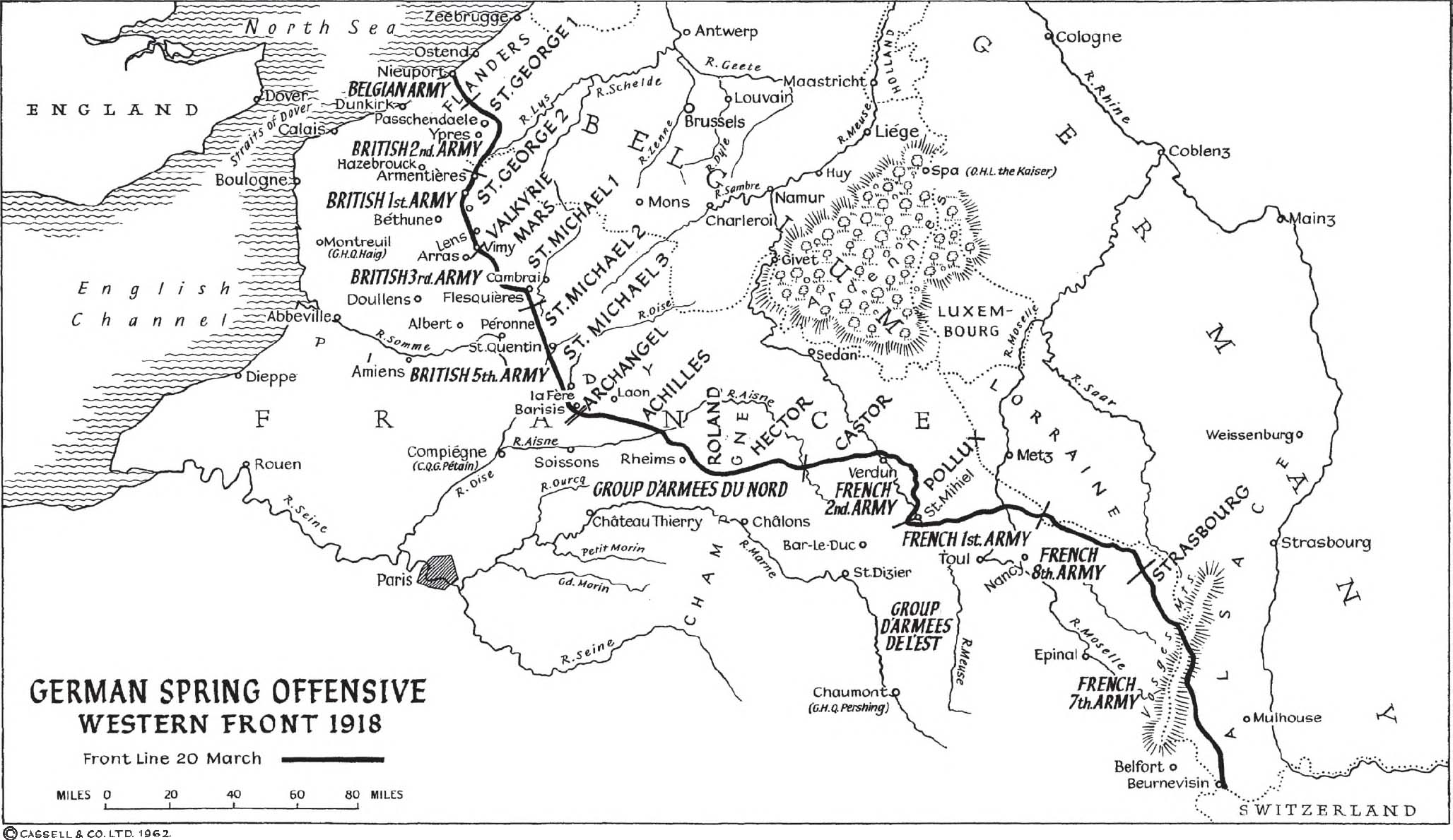
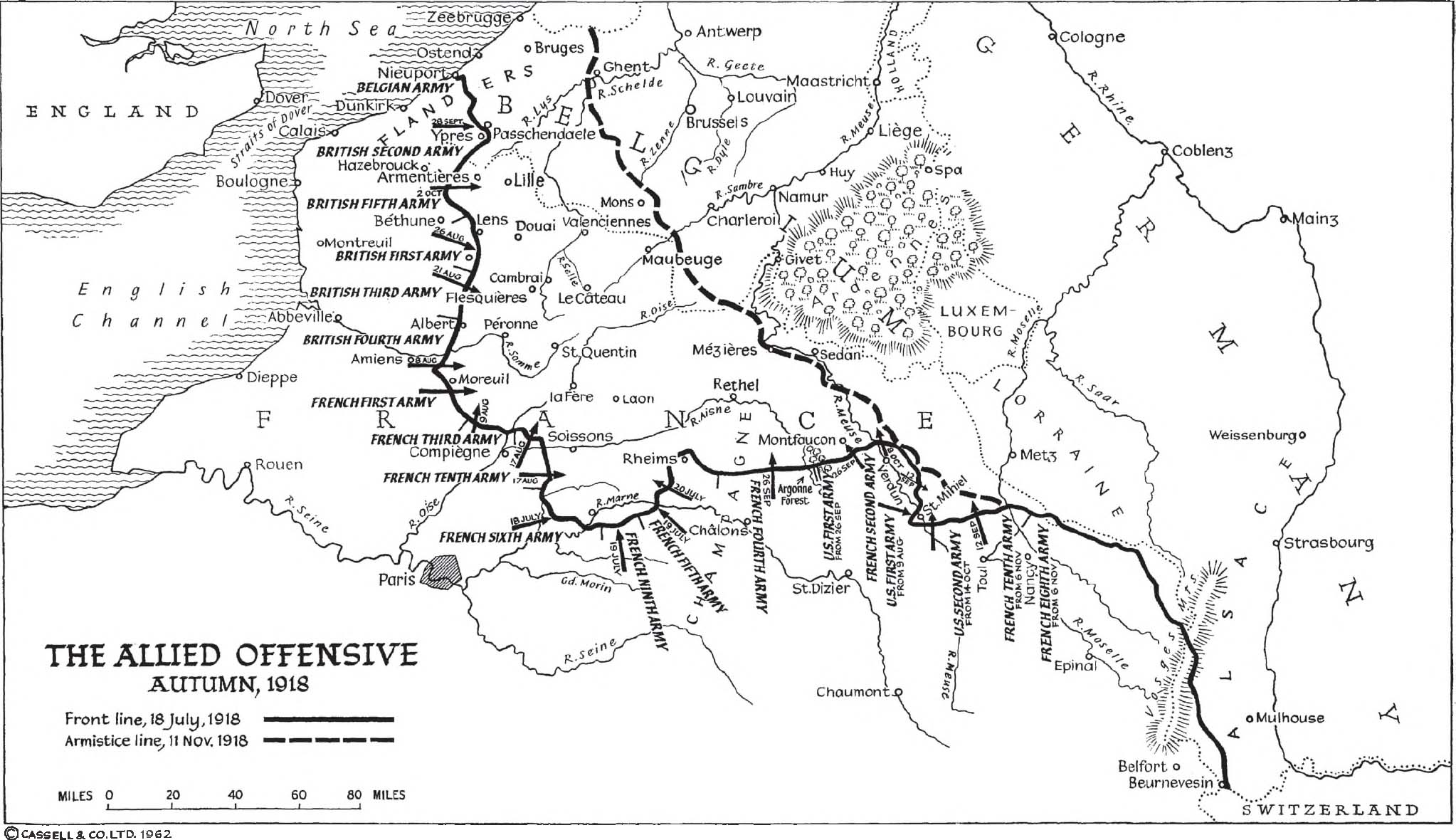
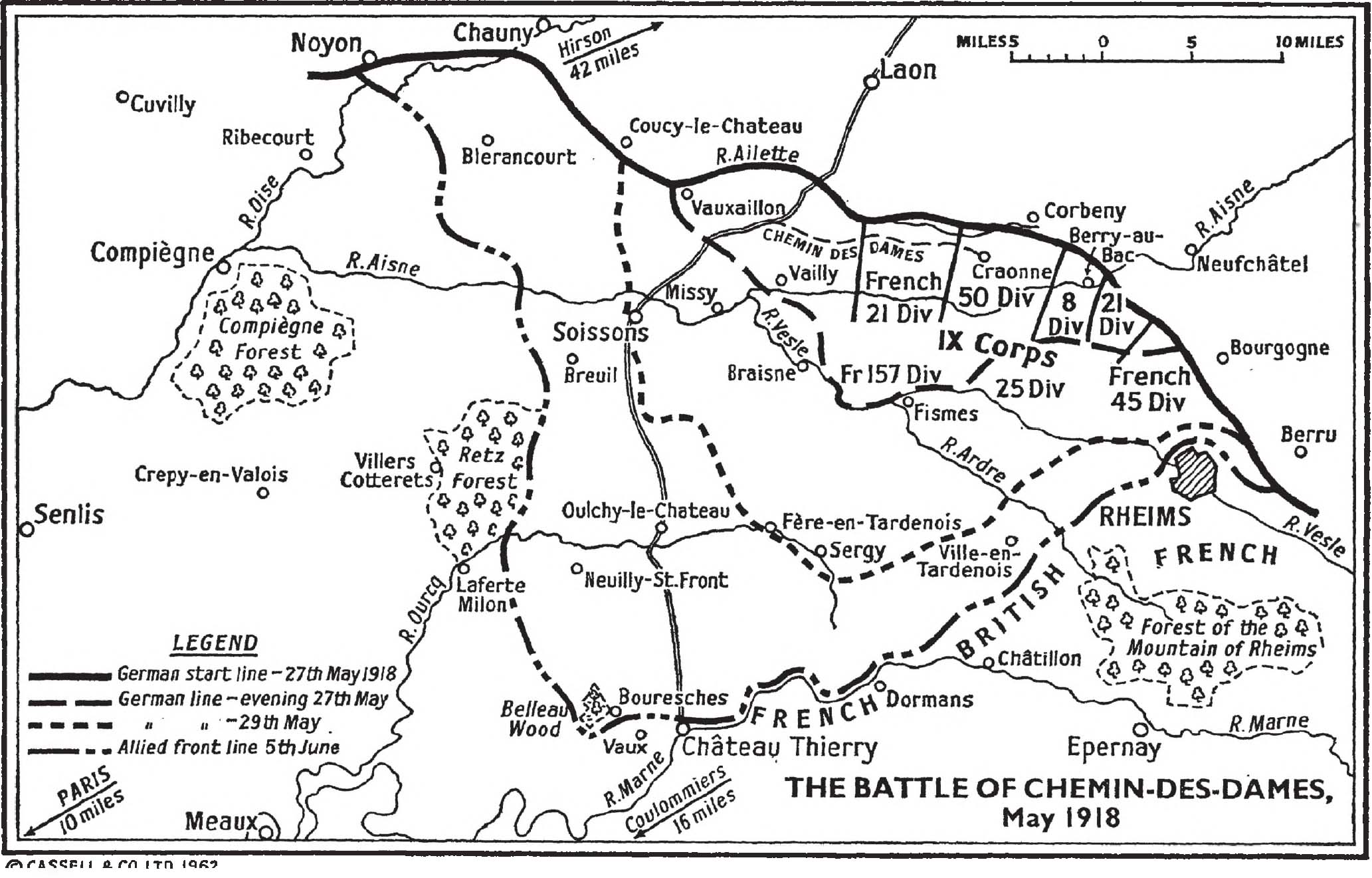
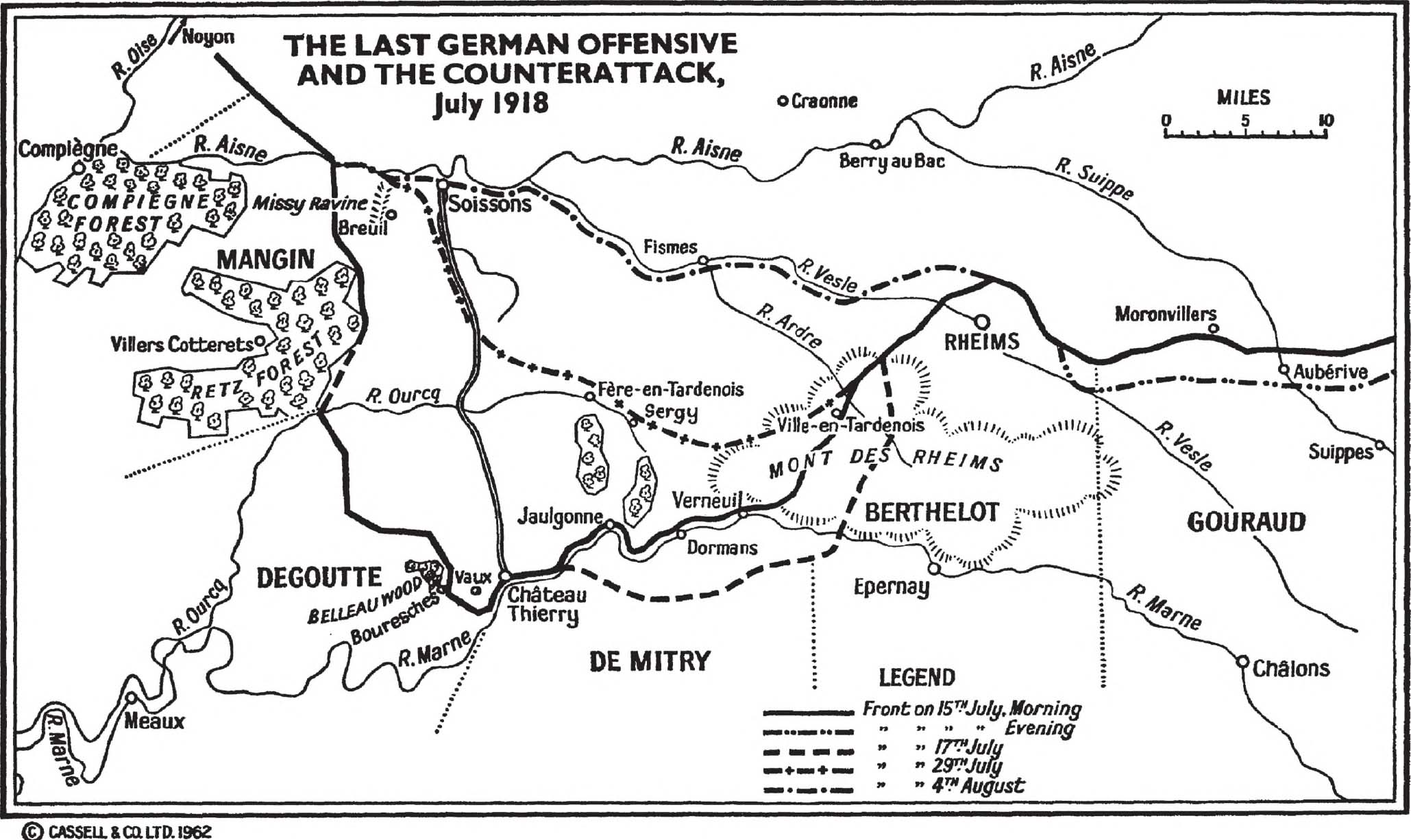
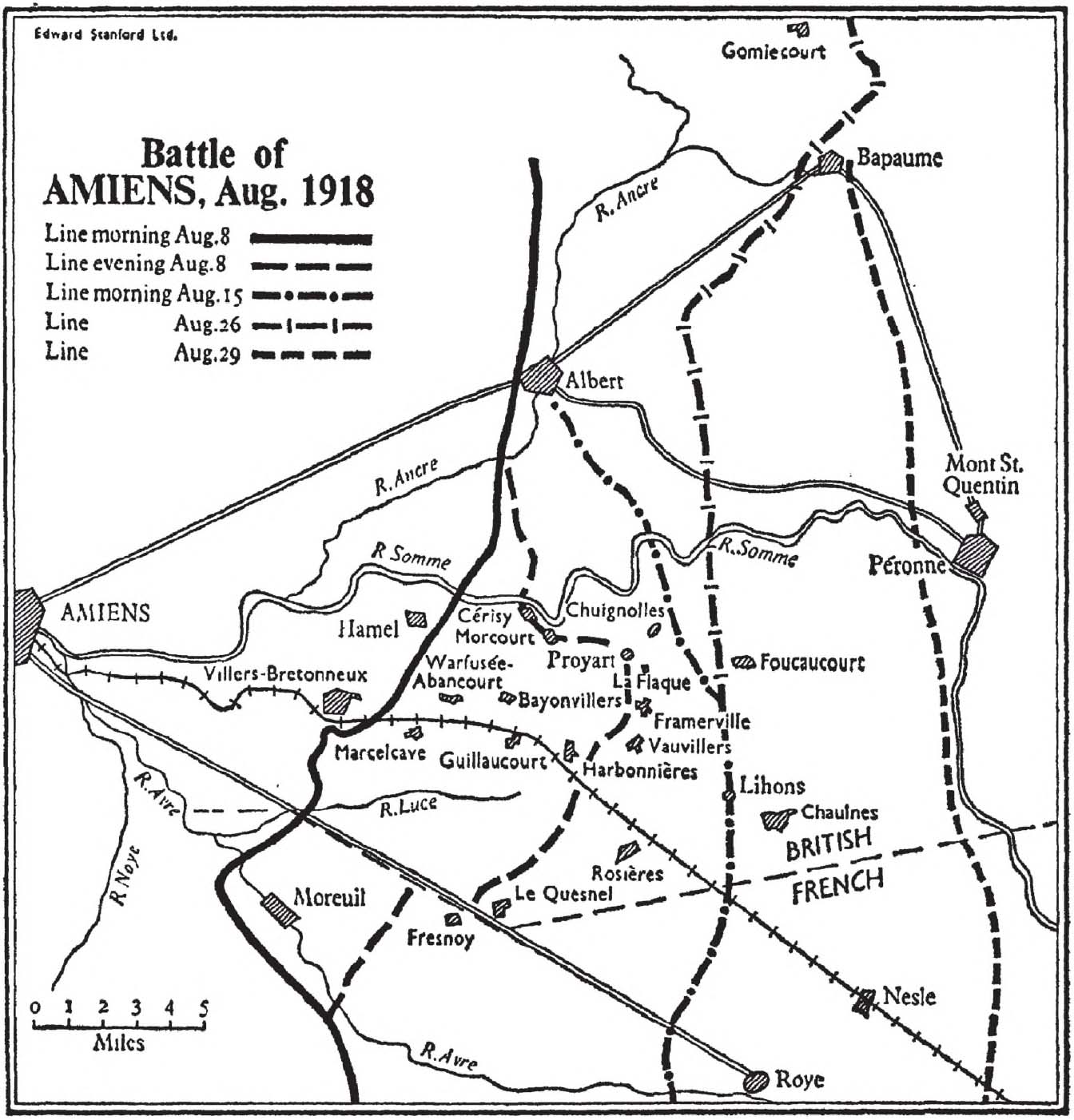
Preface
In a previous book I wrote about the limited but significant engagement at the tiny village of Nry, near Compigne, on 1 September 1914. This short engagement occurred during the opening days of the First World War, when the steadfast defence by a small group of British cavalrymen and gunners stopped and dispersed the German 4th Cavalry Division, as it was undertaking a bold foray to threaten Paris. The plucky British defence had a significant impact on the route taken by the huge German First Army, and made possible a surprise attack by the French Sixth Army on the flank of General von Klucks First Army, thereby beginning the rolling-back of the German advance, in what became known as the First Battle of the Marne. At that time the Expeditionary Force (which was soon renamed the British Expeditionary Force (BEF)) of just five divisions, was retreating through the area near Compigne and Soissons. Later, in October, after a short period attacking the Germans unsuccessfully in their entrenched positions on the Chemin des Dames feature, the BEF redeployed north to the soggy fields of Picardy and Flanders. There it slogged it out with the Germans over four desperate long years of attack, defence and counterattack. During these desperate battles it sustained two and half million casualties, of whom 565,000 British and Empire soldiers were killed (another 392,000 British servicemen died at sea or in other theatres), until it finally defeated the Germans and drove them out of France.
Next page
